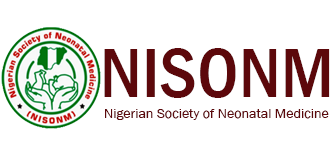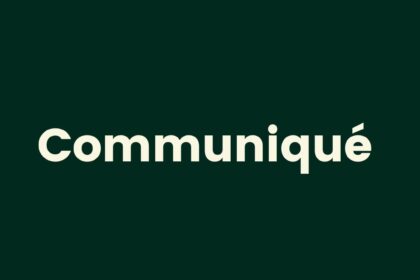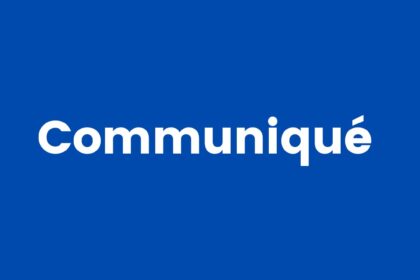Ezenwa BN, Ezeaka VC, Okonkwo IR, Audu LI, Mukhtar-Yola M, Opara P, Oluwafemi B, Mairami I, Mokuolu OA, Bello M, Tongo OO, Ayede AI, Olateju E, Ezeanosike O, IbeBC, Okolo AA, Oruamabo RS.
INTRODUCTION:
The 10th Annual General and Scientific Meeting (AGSM) of the Nigerian Society of Neonatal Medicine (NISONM) took place from 4th-7th July 2017 at the Carlton Gate Xclusive Hotel Ibadan, South -West Nigeria. The theme of the conference was: Imperatives in neonatal survival initiatives in Nigeria: The current state. The sub themes were: Optimal newborn nutrition – early exclusive breastfeeding a priority; as well as, Evidence based practices in newborn respiratory support.
The newborn period which is the first 28 days of life is a very vulnerable and critical period in the life of a child. Newborn health is one of Nigeria’s major health challenges. In Nigeria, while mortality rates are decreasing for mothers and children, progress is slow especially for newborns. Of the 7 million babies born in Nigeria every year, about 260,000 die within the first month of life and 300,000 are stillborn. Neonatal deathscontribute 33% of under -five mortality
The Nigerian Society of Neonatal Medicine (NISONM) encompasses a subspecialty group of paediatricians working in the area of newborn health in Nigeria with the strategic objectives of advocacy, capacity building, social mobilization, dissemination of best practices, development and strengthening of partnerships, and neonatal operational research; all towards reducing neonatal morbidity and mortality in Nigeria.
PRECONFERENCE ACTIVITIES:
The preconference activities of the 10th NISONM AGSMincluded community enlightenment and mobilization outreach programme at Lagelu local government area (LGA) and preconference scientific workshops On July 4th NISONM organized a community mobilization/health talk outreach to about 300 mothers of infants on how to stop newborn sepsis, emphasis on hand hygiene, use of 4% chlorhexidine gel for cord care, exclusive breast feeding, demonstration of kangaroo mother care, neonatal jaundice and other common newborn problems. There was also training on Helping Babies Breathe and the Overview of modified Essential Newborn Care Course (mENCC) for community health workers at Lalupon/Ejiokucommunity town hall, Lagelu LGA, Ibadan. During the workshop, breathing bags and masks (Ambubag) devices crucial for newborn resuscitation, ENCC Action Plan Charts, HBB provider manuals and packets of 4% chlorhexidine gel were donated by NISONM for use in all the primary health care centres (PHCs) in the local government area.
On 5th July 2017, a second preconference workshop was also held on Newborn Respiratory Support (bubble CPAP and mechanical ventilation), where paediatricians and nurse/midwives and other health care providers from secondary and tertiary facilities were trained on this life saving intervention used especially for premature babies. Modules at the workshop included intubation techniques, bubble CPAP and basics of mechanical ventilation respiratory support didactic lectures and hands –on practical skills. Attendance was impressive with more than 120 participants.
THE CONFERENCE PROCEEDINGS:
PARTICIPATION:
With respect to registrations, about 400 delegates attended the conference. The opening ceremony of the conference was chaired by Professor Temitope Alonge, the Chief Medical Director University College Hospital, Ibadan. In attendance were representatives from the Federal Ministry of Health(FMOH), Nigeria, UNICEF, USAID, Maternal and Child Survival Programme (MCSP), JHPIEGO, Save the Children International, Pathfinder International, Wellbeing Foundation, Paediatric Association of Nigeria (PAN), West African college of Physicians, Society of Obstetrics and Gynaecology(SOGON), International speakers from USA, UK, Netherlands, Ghana and South Africa, Neonatologists/paediatricians , , Nurse Midwives, other health care practitioners from public and private establishments, pharmaceutical companies, and the Media. The Head of Child Health FMOH, Dr. Bose Adeniran, represented the Honourable Minister for Health in Nigeria. At the opening ceremony, HE Barr (Mrs) Toyin Saraki, President and Founder of Wellbeing Foundation Africa, delivered the keynote address and dwelt on critical neonatal survival initiatives in Nigeria; and the President of NISONM, Prof Chinyere Ezeaka gave a welcome speech on behalf of the Association.
The conference addressed a variety of topics relevant to newborn health, including specific questions about newborn survival, essential newborn care, breastfeeding, preterm nutrition, prematurity, kangaroo mother care, congenital anomalies and a host of other topics including indicators of positive outcomes.
At the 10th AGSM, NISONM showcased the pictorial”NISONM Newborn Discharge Information Guide” to be used for giving crucial health messages to mothers after every birth in Nigeria, and help avert newborn deaths from harmful practices and undue delays together.
Furthermore, we formally presented the NISONM Helping Babies Breath Action Plan training charts translated to Hausa, Igbo and Yoruba languages to the FMoH for adaptaion prior to national dissemination. These were coordinated by the great efforts of the NISONM zonal program coordinators of the country’s six geopolitical zones.
CONFERENCE HIGHLIGHTS:
Among the many issues raised at the NISONM 10th AGSM, the burden of neonatal deaths was still noted to be high and contributes to one-third of under-five mortality in Nigeria. Simple and cost effective strategies effective in reducing neonatal morbidity and mortality were enumerated but found to be under-practiced. Nigeria currently has the highest number of newborn deaths in Africa and the second highest in the world, and this is unacceptable. Major causes of newborn deaths are prematurity, asphyxia, infections, newborn jaundice and congenital anomalies. Ninety percent of these deaths are preventable by low cost interventions.
Availability of basic resuscitation materials (Bags and masks) and competencies in neonatal resuscitation was still low in many primary health care centers, private and public health facilities. The community health workers who were trained at the preconference had not used a bag and mask device prior to the NISONM preconference workshop. Incidentally this category of health workers undertake about 90% of deliveries at the PHCs. This emphasizes the crucial need for training, provision of basic equipment, and ongoing mentorship for healthcare workers involved in newborn care.
The FMOH in collaboration with NISONM and other key stakeholders have made significant progress by developing newborn policy documents such as the Nigerian Every Newborn Action Plan (NIENAP), The Nigerian Newborn Situation Analysis, the Newborn Call to Action, the Integrated MNCH strategy, Chlorhexidine roll out guidelines, harmonized ENCC training documents, ICCM etc. It was further noted that progress was made on the Saving 100k newborn initiative in collaboration with the American Academy of Pediatrics (AAP) and the Global Development Alliance (GDA), inclusion of chlorhexidine and antenatal corticosteroids on the essential medicine list, increasing level of respiratory support services, mama care initiative etc. However, bottlenecks such as low coverage for MNCH services, poor birth registration, and funding challenges still exist. It was also highlighted that the implementation of kangaroo mother care (KMC) services remains low despite strong evidence for effectiveness. The urgent need for incorporation of KMC in newborn care practices especially for very low birth weight neonates was emphasized. Retinopathy of prematurity (ROP) was also noted not to be routinely screened for in all facilities managing preterm births. Cases of ROP were reported from several centers across the country and . It was stressed to be the commonest causes of blindness in surviving very preterm infants.
The conference provided a forum to review the breastfeeding mileage in Nigeria. It was noted that exclusive breastfeeding rate was still poor at 25% as of 2014. Breast-feeding is the strongest child survival strategy and early initiation is key to sustainable breast-feeding. Challenges to feeding the premature infants were also highlighted. Evidence abounds that early nutrition and improved neurodevelopmental outcomes are linked. The benefits of breast milk fortifiers were also mentioned, and the need to have available low cost human milk fortifiers to help boost the nutrition of our preterms..
The presentation by Professor Vinod Bhutani fron Stanford University USA on Rhesus incompatibility and the CURhE(Consortium for Universal Rhesus Elimination) study noted that the prevalence of Rhesus negative status in Nigeria was high and may contribute to the unacceptable high rate of exchange blood transfusions noted in many centers. Mothers need to know their blood groups and Rhesus status; and every newborn baby must be closely monitored for neonatal jaundice. The CURhE study aims to investigate and address this over the next five yearspending institution of comprehensive implementation strategies.
The conference also noted the paucity of comprehensive surveillance system for birth defects in Nigeria. Congenital abnormality was highlighted as a major cause of infant morbidity and mortality accounting for 4.4% of neonatal mortality globally. It may also cause long term disability. The need to document the types of congenital anomalies seen in Nigeria was highlighted. There should be a congenital anomaly register to follow the trend and variability in order to aid policy decisions and counselling of affected families.
In all, the conference entertained, two pre-conference workshops, six plenary sessions and two scientific symposia.
Take home messages and recommendations from the conference:1. Paediatricians and Neonatologists should be involved in advocacy, resource mobilization activities and engage in sustainable community activities geared towards newborn survival.2. Guidelines on KMC should be implemented fully. The international policy statement for universal use of KMC for preterm and low birth weight infants was endorsed by NISONM for implementation across the country.3. Urgent need to scale up ENCC trainings to community level and the private sector. It is also crucial to scale up skills and availability of bag and mask ventilation devices to all public and private levels of care. 4. Establishment and strengthening of professional linkages and partnerships with other relevant stakeholders vizobstetricians, nurse/midwives, public health physicians, private practitioners, community health workers as well as development partners, non-governmental and private organizations is mandatory.5. Government to establish “Neonatal Centres of Excellence NICUs ” in each of the six geopolitical zones of the country and the use of Public-Private Partnerships strategy to ensure proper funding, infrastructure, maintenance and sustainability.6. Need for collaboration between the ophthalmology society (NIPOSS) and NISONM and routine screening to prevent blindness due to retinopathy of prematurity. Capacity for oxygen monitoring and respiratory support should be strengthened through training, provision of pulse oximetry, bCPAP and supportive supervision at all secondary and tertiary health care levels.7. All health workers involved in the care of the newborns, including doctors and nurses should have training in lactation management, Essential newborn care course (ENCC) and Kangaroo Mother Care (KMC) processes in view of the documented effectiveness of these interventions in the reduction of child mortality.8. NISONM joins the global health community in advocating and encouraging early nutrition of the newborn as studies have shown that enteral feeding prevents intestinal atrophy, improves motility and reduces loss of enzyme function as well as improvements in neurodevelopmental outcomes. FMoH should identify ways of leveraging funds to resuscitate the Baby Friendly Initiative and ensure it operates at community, facility and workplace level. It should also champion a study on the need for breast milk fortifiers in Nigeria.9. Urgent need to establish surveillance and screening programs for congenital anomalies in the country in orderto update the types of congenital anomalies, follow the trend and variability in order to aid policy decisions and counselling of affected families.
Finally, the NISONM 10th AGSM came to a close with a dinner and gala night on the 7th of July 2017. It was a great opportunity for social interaction and networking among participants. The success of the 10th AGSM in Ibadan was due in no small part to the engagement of the Local Organizing Committee Ibadan, the NISONM Executive Council members, the co-chairs, speakers, delegates, and the support by the many sponsors and contributors from around the globe such as the FMOH,UNICEF, USAID, Maternal and Child Survival Programme(MCSP), JHPIEGO, Save the Children International, American Academy of Paediatrics . Pathfinder International, General Electric, The Wellbeing Foundation, Help My Pikin Healthcare Trends (HMP), and Pharmaceutical Companies.





